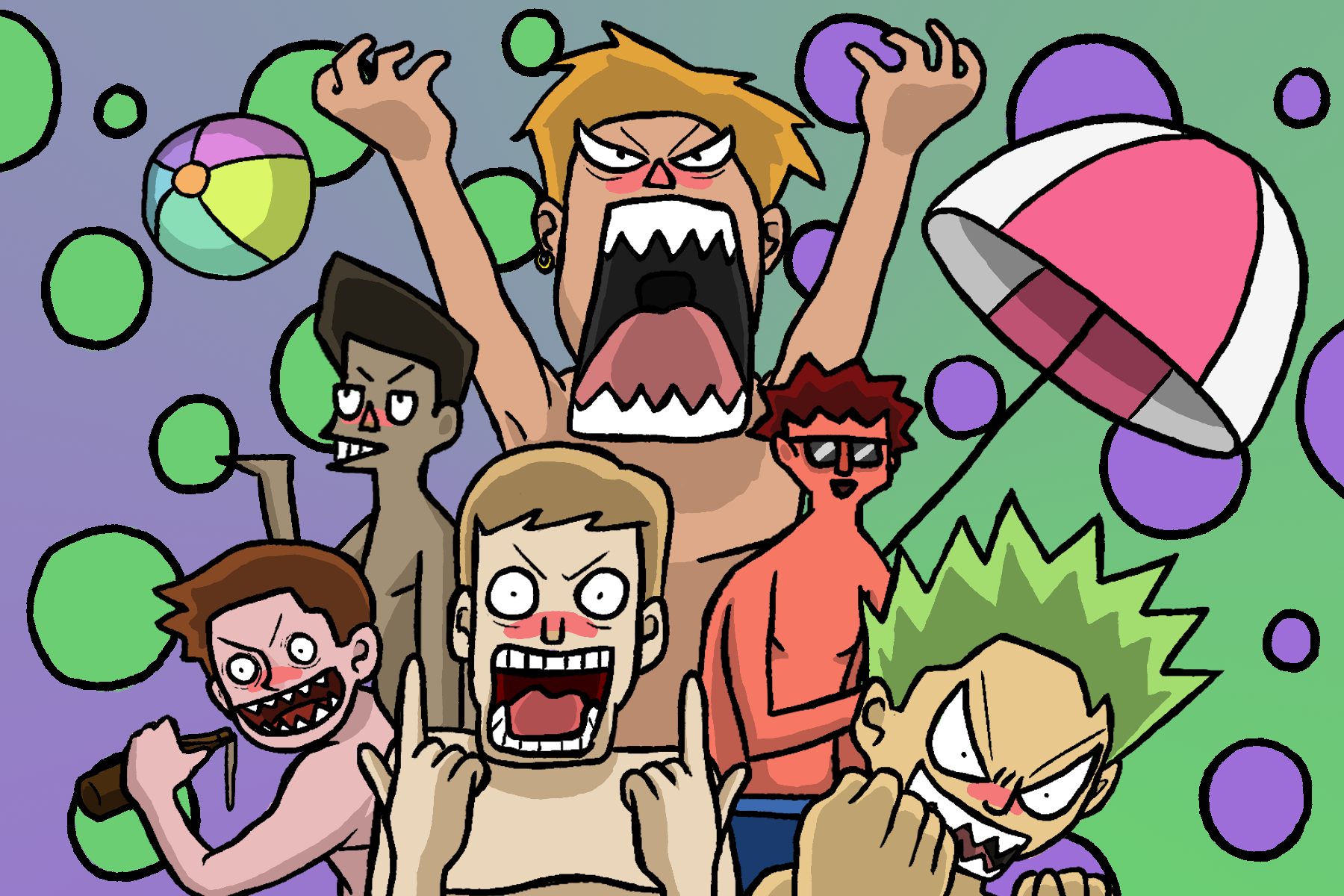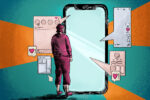On March 15, 2021, Miami Herald writer Madeleine Marr wrote, “Get ready. They’re coming.” Spring break season hits Florida every year between mid-March to mid-April, and the state’s residents have to brace themselves as they prepare for the wave of spring breakers who are on their way to party on their streets and beaches.
According to Boston Globe contributor Hannah Sampson, the oncoming flood of spring breakers put public health experts on edge because these “visitors are likely to be young and unvaccinated — and participants in high-risk behavior like hanging out in bars and packed clubs.” Many are seeking, and hoping, to find “freedom” in Florida through their looser and more lenient health regulations amid the ongoing COVID-19 pandemic.
Even before the current circumstances, spring break had negative connotations surrounding it. Nick, a 36-year-old Missouri resident, complained of a family vacation ruined by an onslaught of drunk and high teenagers. In an attempt to find an affordable vacation spot for his family, Nick chose to settle on taking his wife and kids to Panama City Beach, Florida. His dates just so happened to align with spring break, and he claims his trip went bad when their hotel became filled with young adults with bad drinking habits.
However, now residents and officials are saying that spring break has hit harder than ever, as boozed up and unmasked college students looking to unwind from their long semesters use Florida towns as partying hotspots. Things got extra wild on the 700 block of Ocean Drive, which has been called “ground zero for spring break mayhem” according to Rolling Stones author Olivia McAuley.
An article posted to The Guardian describes the party: “They stomped on top of cars, causing roofs to cave in and windshields to shatter. They danced, drank booze and smoked marijuana.” The author continues, “…bursts of violence and vandalism including sidewalk café brawls, stomping on cars and shootings have marred the party atmosphere in the Art Deco district.”
In an attempt to stay safe amid the pandemic, bars and nightclubs were forced to close early. However, instead of helping to solve the problem, this only created new ones. Due to a lack of open facilities, Florida’s spring breakers took their parties to the streets, where they “wreaked havoc” and caused more problems than necessary. In fact, this even led to a state of emergency and an 8 p.m. curfew.
In an article for Newsweek, author Benjamin Fearnow writes about the law enforcement situation in South Florida. Over 1,000 arrests were made over the weekend of March 18, and a vast majority of these arrests involved out-of-state travelers. Fearnow describes the havoc as a “‘siege’ of spring break partiers who have taken over the streets and dismissed pandemic guidelines.” City manager Raul J. Aguila says that those who were arrested came to the state of Florida with the intent “to engage in lawlessness” with an “‘anything goes’ party attitude.” Social media was flooded with young adults’ videos of their wild Floridian parties.
The spread of COVID-19 wasn’t the only deadly thing happening in Florida during spring break. According to an article on The Guardian, “the festivities recently took a dark turn” when a 24-year-old nursing student, Christine Englehardt, was found dead in a South Florida hotel room.
Florida’s great spring break scene attracted many visitors this year, including Englehardt, Evoire Collier and Dorian Taylor, who were all between the ages of 21 and 24. According to Tampa Bay Times contributor David Ovalle, police refer to what happened as a “predatory assault” that resulted in Engelhardt’s lifeless body being abandoned in her room at the Albion Hotel. Security tapes show Engelhardt returning to the hotel at 1 a.m. with Collier and Taylor. She was having a hard time walking and the tapes show Taylor holding her up.
Both Collier and Taylor are being held at the Miami-Dade jail for allegedly drugging, raping and robbing Engelhardt during their spring break trip in Florida. One of these men was reported to have given Engelhardt a green pill — suspected to be Percocet — and according to some medical experts, if the Percocet was mixed with alcohol, it could prove to be lethal. However, it is not certain if overdose is what killed Engelhardt; the official cause of death is yet to be determined by the Miami-Dade medical examiners. Although Collier’s sister said that her brother had never been in trouble with the law before and asked for him to be returned to his family, the judge ordered that both men be held without bond. While some critics take to social media to blame Engelhardt for going on holiday by herself and getting involved with strangers, others wish death upon the two men. Opinionated commenters say that since Engelhardt never gets to go home again, neither should either of the two men who took her life from her.
A GoFundMe page has been set up by Sam DiFrancesco to help pay for Engelhardt’s funeral and memorial expenses. In the description of this page, the author writes that the men who attacked Engelhardt do not deserve to be in the media’s spotlight because they “stole this woman’s entire future in a very sickening way and put her mother and father in a great deal of heart break.” The GoFundMe has raised a little over $60,000, which is $40,000 above the $20,000 goal. While this does not change what happened or even begin to make up for it, it has been a wonder to see so many people come together to contribute to Engelhardt’s family.
Spring break is known for its crazy parties, boozed-up college students and overcrowded beaches. This year Florida was hit harder than ever despite the ongoing COVID-19 pandemic. Drunk and unmasked college students took over the streets of Miami and over 1,000 arrests were made. This year’s spring break even claimed the life of a young nursing student. This spring break from hell justifies the hatred that everybody, especially Florida’s residents, has for spring breakers.

















